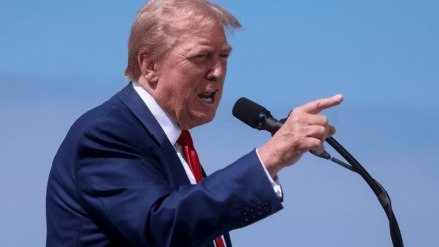President Donald Trump announced Sunday he aims to broker a deal to end the Russia-Ukraine war in two weeks or less, though he later acknowledged that a bit more time might be acceptable. The deadline comes after a meeting with Ukrainian President Volodymyr Zelenskyy in Vatican City, where both leaders attended Pope Francis’ funeral.
Speaking to reporters at Morristown Municipal Airport before returning to Washington, Trump expressed optimism about the discussions but noted he was “very disappointed” with Russia’s continued missile and drone strikes on Ukraine despite his previous call to Russian President Vladimir Putin to halt the attacks during ongoing negotiations.
“I think the meeting went well, we’ll see what happens over the next few days. We’ll probably learn a lot,” Trump stated. He also shared that Zelenskyy had emphasized Ukraine’s need for additional weapons, which Trump promised to “see what happens” with respect to Russia’s actions.
Trump reiterated his demand for Russia to stop its attacks, sit down, and sign a peace deal. He described the situation in Crimea—occupied by Russia since 2014—as a potential roadblock but suggested that Ukraine could eventually give up the territory.
U.S. Secretary of State Marco Rubio also weighed in, commenting that while a deal between Russia and Ukraine is closer than it has been in the last three years, it is still not finalized. Rubio stressed that the U.S. must assess whether it should continue mediating the talks or redirect its focus elsewhere.
“The last week has been about figuring out how close the sides really are and whether it’s worth continuing our investment as a mediator,” Rubio said during an appearance on NBC’s Meet the Press.
In the aftermath of Trump and Zelenskyy’s meeting, the Ukrainian president described the session as “good” and expressed hope that it could lead to significant outcomes, particularly regarding a full and unconditional ceasefire. He emphasized the need for lasting peace to prevent future conflicts.
Meanwhile, Trump condemned Russia’s ongoing bombardments of Ukrainian cities, including recent drone attacks that targeted six Ukrainian regions, a move condemned by the U.S. and its allies.
Amid these developments, Senate Minority Leader Chuck Schumer voiced concerns that Trump could be inclined to “cave in to Putin,” calling such a move “a moral tragedy” and a signal of weakness that could embolden other global dictators. Schumer warned that abandoning Ukraine would fracture U.S. alliances, especially with European partners.
National Security Adviser Mike Waltz hinted that further sanctions on Russia could be on the horizon, aiming to bring both sides back to the negotiating table. He suggested that Trump might explore options such as action on banking and the oil and gas sectors, combining diplomatic and economic pressure.
As the international community watches closely, the coming days may prove pivotal in determining the direction of U.S. involvement in the Russia-Ukraine conflict and the likelihood of peace.
